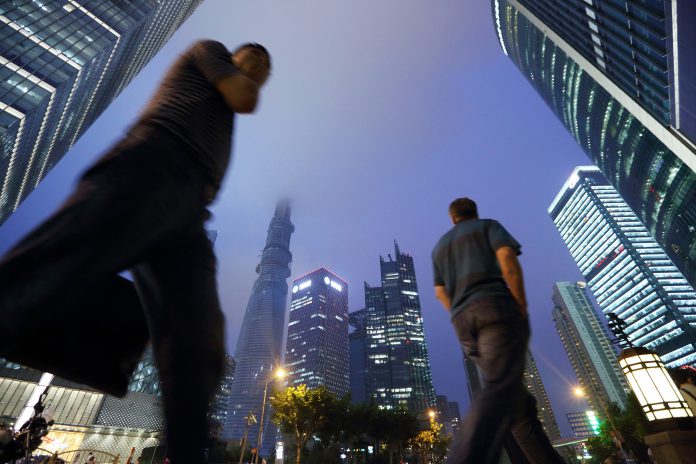MB September 2019 Special report | 40 Years, 40 Companies

Amorim – the first one
A happy coincidence: the first of the 40 companies referenced in this special report was the first Portuguese company to investigate the Chinese market, yet Chinese companies had not begun to cross borders.
In the mid-1980s, the world leader in the cork sector opened its first office in Beijing.
From there Corticeira Amorim never stopped, with a presence in several cities (Guangzhou, Shanghai and Shaanxi).
In addition to being the first to seek out China, Amorim has never given up on this market, notching up more than 30 years of uninterrupted presence.
No other Portuguese company has such a sturdy and permanent presence.
Corticeira Amorim began selling corks and opened a small production unit in the Chinese capital.
Amorim’s cork stoppers continue to be sold in China, but the company has diversified its supply: it has a unit selling cork composites in Shaanxi and coatings (especially for homes) in Shanghai.
The Amorim Group is one of the largest, most entrepreneurial and dynamic multinationals of Portuguese origin. Its origins were in the cork business, back in 1870. Currently, the company has 30 industrial plants, 47 distribution companies and 254 key distribution players around the world.

Aptoide – to replace Play Store?
If Google terminates Android support on Huawei devices as a result of the United States’ trade war with China a Portuguese company stands first in line to replace Play Store.
Aptoide, the Portuguese app store for Android, has more than 900,000 apps and 200 million active users and is therefore one of the main alternatives available to Huawei. Unlike Google Play Store, Aptoide is not a unique and centralised store.
Aptoide opened an office in Shenzhen in 2015 to recently reach one million devices exported from China. The business development team has been closing a number of partnerships with local Android device manufacturers to include Aptoide pre-installed on their devices. Among these manufacturers, says the company, are brands like Vivo, Gionee, LEAGOO, Qmobile and even Android TV manufacturers such as Skyworth, KONKA and Changhong.
The connection of the Portuguese company, founded in 2011, to China proves otherwise: one of the main financial investors in the company is a Chinese venture capital company, Gobi Partners, as is the case with Golden Gate Ventures (Singapore).
In 2014, Aptoide filed a European Union Antitrust complaint against Google, claiming that the US company had created obstacles for users to install third-party app stores and blocks access to Aptoide websites on its Chrome Web browser.

Delta Cafés – partnership with Alibaba
Delta Cafés is the main brand of coffee processed in Portugal. Macau residents who enjoy roasting have already become accustomed to finding Delta in local cafes and supermarkets – the company has been in this market for several decades through importation.
In 2014, they entered the Chinese market through a partnership with Bright Foods group, one of the largest food distributors in China. In 2015 they formed their own company for that market called Delta Foods Shanghai.
Initially worth about one per cent of the group’s exports to China the company expects to be in its top five export markets for coffee and home machines by the end of 2020 (the group is present in China with its two biggest brands: Delta, with coffee beans and ground, and Delta Q, in capsules.)
To this end, the Alibaba marketplace has invited Delta to boost the ‘coffee’ category, having identified coffee as one of the strategic categories for the coming years.
The partnership, slated to last five years, is “a unique opportunity for Delta Cafés as an innovative brand to learn and respond to new consumer expectations,” say Delta.
(Only eight per cent of Chinese consume coffee, but that eight per cent represents 110 million consumers!)

Ecoprogresso – carbon credits
It is called Ecoprogresso and since 2008 has been the only Portuguese company operating in the area of environmental and development consultancy in China.
Its core business carbon credits, the company has invested 40 million euros in this market, with the objective of contracting at least another two million tons of carbon credits – greenhouse gas emission allowances.
China is one of the three largest CDM markets – Clean Development Mechanisms – alongside India and Chile, according to pointcarbon.com, an industry consultant.
A year later, Ecoprogresso already had 12 projects contracted for China, from Tianjin to Xinjiang.
In 2011, the Portuguese Embassy in China became the first diplomatic Free-Carbon representation in Beijing through a programme of voluntary reduction of direct and indirect emissions, in a process that was brokered by the Ecoprogresso office in Beijing.

Edeluc – tourism
Edeluc is a business consultancy ‘focused on facilitating and establishing new businesses between Europe and China. We assist European investments in China and Chinese investments in Europe.’
And they came into view early on: instead of simply trying to help Portuguese companies interested in investing in this country it decided to become the concessionaire of a 500,000 square metre business park in Weifang (Shandong Province) for 50 years. In 2007, it managed to attract a furniture factory to open an industrial unit, but things did not go well and in 2009 Edeluc sold its stake in the Weifang Export Processing Zone to a Taiwanese company.
The failure did not make it give up. It continued to focus on the Chinese market and since 2014 has been a COTRI Country Partner in Portugal (COTRI China Outbound Tourism Research Institute is the world’s leading independent research institute for information, training, quality assessment, research and consulting relating to the Chinese outbound tourism market.)
This specialisation in tourism has already been rewarded: at the initiative of Edeluc, since 2015 Portugal has received the Welcome Chinese certification programme, a set of standardised international service standards approved and disseminated by the China Tourism Academy.

Efacec – electric mobility
Efacec is a global leader in quick charge chargers (electric mobility) and it was at its doorstep that the Hong Kong-Zhuhai-Macau Bridge building team set up to install fast loaders in the infrastructure. Not surprisingly, Efacec is the main sponsor of the Techeetah Formula E Team, owned by China Media Capital, champion of Formula E, the largest competition of electric cars in the world organised by the International Automobile Federation and touted as the future of Formula 1.
But Efacec’s course in China begins much earlier. The company was one of the first to enter Macau and to take advantage of the opening of the Chinese market in the 1980s. It had two factories in Macau and one in China (Efacec Electric Equipment Co.), the largest Portuguese investment made in this country in the last century.
None of these industries is now in the hands of Efacec, which directed the strategy for new bets – the most notorious being electric energy. But if we say that some of the most iconic buildings in Macau (Hotel Lisboa, Macau Tower) are equipped with Efacec transformers we realise that this is a connection going back almost 50 years.

Farfetch – luxury brands
In 2017, JD.com, one of China’s two largest online retailers, invested $397 million in Farfetch. Farfe . . . what?
Farfetch is a platform that aggregates more than 700 international luxury brands, created in Portugal and listed on the New York Stock Exchange.
Prior to this agreement, Farfetch already had operations in the Chinese market, with a partnership of 200 luxury brands and more than 500 multi-brand retailers, but the company’s top priority is to truly attack the luxury market in China, valued at US$80 billion (the second largest in the world) and JD.com’s investment is for that purpose. With this investment, JD.com became one of Farfetch’s largest shareholders, while Richard Liu, founder and CEO of JD.com, joined Farfetch’s board of directors.
In the presentation of the results for 2018, company founder José Neves (holder of 77 per cent of the voting rights) revealed that according to the research team of Swiss bank UBS, the Farfetch application is already the Western app dedicated to most popular luxury items in China.
Another advantage resulting from the entry of JD.com is the company’s capital: Toplife, the company of that Chinese group passes to the control of Farfetch China and thus Farfetch obtains ‘Level 1’ access on the JD.com app.

Filstone – ornamental stone
From the quarries of central Portugal limestone and ornamental rock have always been used for many destinations in the world, but what those responsible for these quarries did not realise was that China would become a preferential market.
Filstone is the best example of this: the company was established in 2002 as a co-operative for several quarries that received orders from China but could not respond. Two years later, they opened an office in Shanghai for a permanent presence in the Chinese market. In 2018, the company opened a showroom in Shuitou, Fujian.
Today, Filstone sells to destinations as diverse as the Mormon temple in Tennessee and a residential building in London (Bridge House), but it is in China that the bulk of its customers are.
In the last few years Filstone has seen its stone placed in buildings from places as different as Yancheng, Jiangsu, the Sheraton Qiandao Lake Resort in Zhejiang, and Wuxi (Binhu) National Sensing Information Centre. From Shanghai to the Dafeng Peninsula Hot Springs International Hotel and Kunming many of these structures are enhanced with ornamental stone and limestone from Filstone.
























